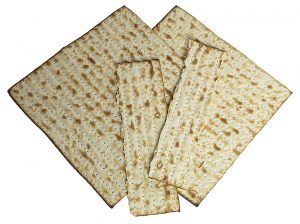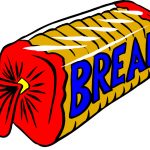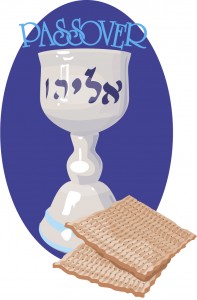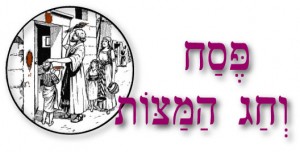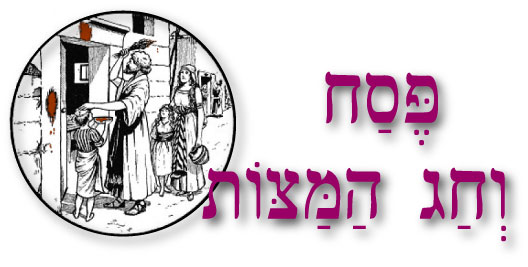There has been a perennial question among many Christians as to whether Yeshua ate leavened or unleavened bread during his last supper Passover communion service. This is because of the Greek words for bread that appear in the Greek NT manuscripts. The excerpt below answering this question is from a larger article I wrote years ago entitled “Passover…When Do We Celebrate It? At the Beginning OR the End of Aviv 14?” available at https://www.hoshanarabbah.org/pdfs/psvr_dy.pdf .
I take the position that Yeshua didn’t eat leavened bread during communion, since it would have violated biblical (Tanakh or OT) types and shadows pointing to Yeshua’s sinlessness. I cannot and will not eat leavened bread in communion because I don’t want in any way to imply or even remotely suggest that Yeshua was a sinner. In this excerpt from my article, I explain the reasons for my position.
Unleavened Bread Versus Leavened Bread
At this point, many questions arise for the honest Bible student. Whatever Yeshua was doing with his disciples Passover-wise, it was before he was to suffer, as Luke 22:15 states. Was he eating an actual Passover lamb? Or just eating bread that was now to become an emblem of his body, a picture of the sacrificial lamb itself? If he was eating bread, and not lamb itself, then why is the term for the bread that he ate with his disciples that night a reference to generic bread (see Matt. 26:26; Mark 14:22; Luke 22:9; 24:30; 24:35; John 13:18), and not unleavened bread, which is a totally different word in the Greek language? To be sure, unleavened bread, not leavened bread, was eaten during the Passover meal in accordance with the Hebrew Scriptures (Num. 9:10-11; Josh. 5:11).
Could this reference to generic (leavened) bread, to which the Gospel writers make unanimous reference in all of their accounts, have been referring to Yeshua as “the bread of life?” Yeshua refers to himself as the “bread of life” (the same Greek word [artos, Strong’s G740] for generic, leavened bread is used in Yeshua’s “Last Supper” accounts as well as in his references to his being the bread of life) in several places in the Gospel of John (6:31, 33, 34, 35, 41, 48, 50, 51, 58). If Yeshua was keeping an early Passover meal with his disciples, that is, early on the fourteenth of Abib instead of late on the fourteenth, which is when the Jews kept it and when the Passover lamb was sacrificed in the temple, which corresponded to when Yeshua was hanging on the cross, then it would have been permissible to eat leavened bread. Torah commands that only unleavened bread be eaten during the seven-day Feast of Unleavened Bread between the fifteenth and the twenty-first days of the first month (Exod. 12:15; 13:6-7; 23:15; 34:18; Lev. 23:5-6; Num. 28:17; Deut. 16:3, 8). Leavened bread is not prohibited from being eaten on the fourteenth (although the Hebrew Scriptures or Tanakh does forbid its being eaten during the actual Passover ceremony itself [Num. 9:10-11; Josh. 5:11], which would have started at the end of the fourteenth and overlapped into the fifteenth, which was the first day of the Feast of Unleavened Bread), though it is safe to say, that most Israelite homes had already been de-leavened by then. The Jews kept Passover (and still do to this day) at the end of the fourteenth and ate their Passover meal actually at the beginning of the fifteenth, which is the beginning of the time when Torah forbids the eating of leavened bread for seven days.
So Yeshua could have eaten leavened bread at the beginning of the Passover day as an object lesson to his disciples (and to us) that he was the bread of life, to which the Passover lamb pointed, and he would not have violated Torah.
That Yeshua ate leavened bread is one line of reasoning that some students of Scripture use to attempt to disprove that his last supper was a Passover Seder. However, to counter this point, some will refer to the Scripture passage in 1 Corinthians 11:17-34, which is a reference to the last meal that Yeshua had with his disciples. There is no mention specifically here of a Passover Seder, but only a meal and the term for bread here is artos, the Greek word for generic, leavened bread. Does this, passage therefore prove that what Yeshua did with his disciples was not a Seder, even though Yeshua himself referred to it as such? If so, why the usage of the word artos and not the Greek word azumos (Strong’s G106) for unleavened bread? Furthermore, some find it unimaginable that Yeshua would be partaking of leavened bread and likening it to his body, when leavened bread contains yeast or sour dough, a type of sin, and we know that Yeshua had no sin in him. Others say that it was appropriate for him to eat leavened bread, since he took our sins upon himself and that he went to the cross with leaven (a picture of our sins) in him. It might also be added that using the generic term for bread (in reference to the last supper) does not prove conclusively that it was indeed leavened bread. It could have been unleavened. Unleavened bread is still bread. It’s simply a flat bread. But why doesn’t Scripture say so then? If we believe that every detail of Scripture is divinely inspired, we have reason to be confused when certain things do not seem to add up.
We take the position that Yeshua did not eat leavened bread during his Paschal meal, and for a very good reason. In the levitical sacrificial system, YHVH forbad the offering of leavened bread with the sacrifices on all occasions except on the Feast of Pentecost when two leavened loaves were lifted up representing Israel. Even the twelve loaves of bread on the Table of Showbread in the Tabernacle (representing Israel in a purified or sin-free state) were unleavened. Leaving is clearly a picture of sin. Yeshua, the perfect sacrificial Lamb of Elohim fulfilled the sacrificial system types perfectly. It seems unthinkable that the Lamb of Elohim, slain from the foundation of the world, who was sin-free, could have eaten leavened bread and had leavening, a picture of sin, in him when he went to the cross. For this reason, we believe Yeshua ate unleavened bread.

